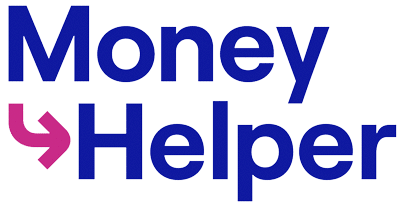Debt Consolidation Calculator
If you have multiple debts, it can be helpful to combine them into one monthly payment. There are a number of debt solutions that can help you do this such as an Individual Voluntary Arrangement (IVA) or a Debt Management Plan (DMP).
Alternatively, a debt consolidation loan can be a good option to consider. This allows you to take out a loan to pay off your debt and then repay the loan in monthly payments until it is fully repaid.
To help you work out what your payment could be, we’ve created a debt consolidation calculator, taking into account repayment terms and Annual Percentage Rate (APR).
Acceptance for a loan will depend on your credit rating. While consolidation loans can help make repayments easier, you could also end up repaying more money if not managed carefully.

To discover more about how to manage your debt and to receive free debt advice, you can visit www.moneyhelper.org.uk or read about options for paying off your debt.
What is a Debt Consolidation Calculator?
A debt consolidation loan calculator helps you estimate what your monthly repayments would be if you took out the loan so you can decide whether it’s a good option for you. To use it, you’ll need to enter the loan amount (the total of your existing debts), a repayment term (usually in years), and an Annual Percentage Rate (APR).
By using this tool, you can see how much you’d realistically have to pay each month and also estimate the total interest you’ll pay on the loan and compare it to what you’re currently paying across multiple debts.
Interest rates may vary depending on the provider and loan amount. Approval is subject to your financial situation and ability to repay the loan.

How to Use a Debt Consolidation Calculator
Using our debt consolidation loans calculator is quick and easy. Simply follow the steps below:
1.
Work out your total loan amount
Combine all the debts you want to consolidate, including credit cards, personal loans, store cards and overdrafts. You will need to check whether all your debt is eligible as some lenders may not accept certain types. Once you have the total amount, input it into the calculator.
2.
Choose a repayment term
Decide how long you’d like to repay your loan and put it into the calculator. A longer term usually means lower monthly payments but higher interest costs overall. Certain lenders will also have limits on the length of your repayment term.
3.
Enter the APR
This is the interest rate you expect to be offered for your debt consolidation loan. You can often get a quote from a lender beforehand to get an accurate idea. Input this rate into the APR field.
4.
Click to calculate
Enter your loan amount, interest rate and loan duration and the tool will generate your estimated monthly repayment and how much you’ll repay in total.
Understanding Your Results
Once you’ve entered your figures, the calculator will display your estimated monthly repayment. This is what you’d expect to pay each month if you were approved for the loan on the terms you entered. You can also compare this to your current monthly debt repayments to see
if a consolidation loan might help manage your monthly budget.
Another important thing to consider is the amount of interest you’ll pay. Debt consolidation loans can often have high APRs, especially if you have a poor credit score and some lenders will vary how much interest they charge depending on how much you’re borrowing. Make sure to compare the total interest you’ll pay with any interest you’re currently paying on debts to decide whether a debt consolidation loan is a smart financial move.
Benefits of Using a Debt Consolidation Calculator
Our debt consolidation calculator can be a helpful tool in deciding whether a loan is the right option for you. Benefits include:
Instant results
See at a glance what your monthly payments could look like if you consolidate your debts, helping you to assess whether the loan fits within your current budget.
Easy comparison with existing debts
Compare the cost of a consolidation loan with what you’re currently paying across multiple credit cards, loans, or overdrafts.
Customised insights
Adjust the loan amount, term, and interest rate to test different scenarios and instantly see how these affect your monthly repayments and total interest paid.
Effective financial planning
Estimate your future payments to help you plan your monthly budget more effectively.
When Should You Consider Debt Consolidation?
Debt consolidation loans aren’t the right choice for everyone, but they can be a helpful solution in certain circumstances.
You might consider a debt consolidation loan if:
- you have multiple debts with high interest rates, especially credit cards
- you’re struggling to keep up with different payment dates and lenders
- you want to simplify your finances by having one monthly repayment
- you have a good enough credit score to qualify for a loan with a competitive APR.
On the other hand, you might want to avoid a debt consolidation loan if:
- the new loan would result in higher total repayment costs
- your credit score is low, making it difficult to secure a good rate
- you’re likely to borrow again after consolidating, which could worsen your situation
- you’re close to paying off your current debts and wouldn’t benefit from starting a new loan term.
Next Steps After Using the Calculator
After you’ve used the calculator, it’s a good idea to get in touch with a debt adviser to discuss the options available to you, whether that’s a debt consolidation loan or another debt solution that allows you to combine your debt.
